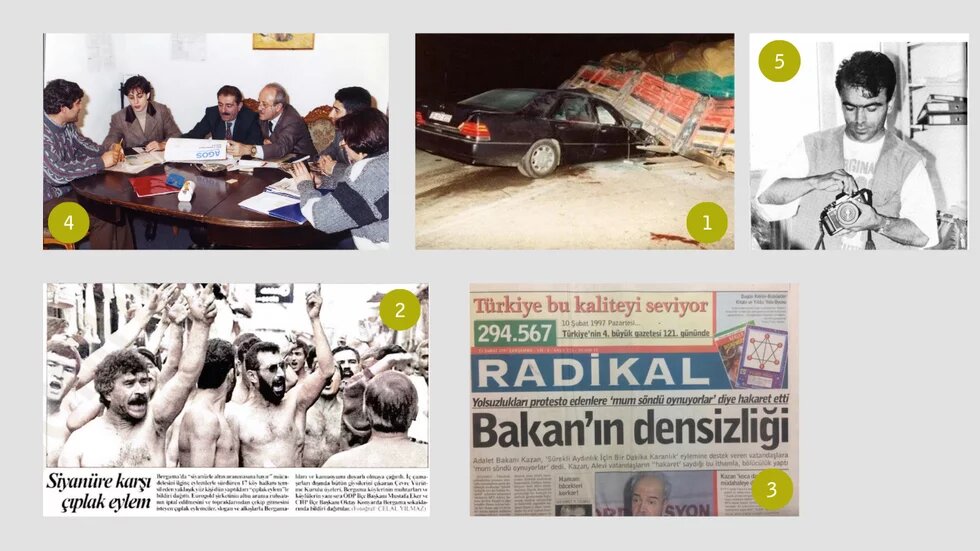
Turkey joined the Customs Union on 1 January 1996. The next goal was a formal declaration of candidacy for European Union membership and the start of negotiations.
However, despite Turkey announcing a "democratisation and human rights package" in response to European concerns, the country remained far from fulfilling the Copenhagen criteria, the essential requirements for EU membership.
Nor the Maastricht criteria.
By the end of 1996, the annual inflation rate had exceeded 84 per cent. While the country was experiencing economic growth, it came at a steep price—for both people and the environment.
The villagers' resistance against the Ministry of Environment's decision to grant Eurogold permission to use cyanide in its gold mining operations in Bergama marked a pivotal moment for Turkey's environmental movement.
The solidarity that formed around the villagers, symbolised by the image of the company's general manager as a bird covered in tar and driven out of Bergama, was a powerful testament to the people's determination.
Although the company continued its gold mining operations, the Bergama struggle had a lasting impact, significantly enriching the repertoire of social movements in Turkey.
The Heinrich Böll Stiftung Istanbul office supported the East and West Mediterranean Environmental Platforms. Ecology being one of its three core focus areas, Heinrich Böll Stiftung Turkey will maintain its role as a supporter and partner of Mediterranean environmental organisations for years to come.
1 – On the evening of November 3, 1996, a traffic accident in Susurluk exposed the deep connections between the state, the police, and the mafia. The fight against the structure revealed by this incident would become a central issue for the civilian sphere in the years that followed. (haber7) 2 - Bergamans staged a half-naked protest demanding the cancellation of the license of Eurogold, which is trying to search for gold with cyanide. The protest was supported by the district heads of the newly founded leftist party ÖDP. (Milliyet) 3 – The “One Minute of Darkness for Constant Light” protest, initiated in response to corruption and the deep state, became one of the most widely supported civil and peaceful movements of Turkey. The then-Minister of Justice, Şevket Kazan, also drew criticism for his hate speech against Alevi citizens. 4 – That year, alongside the Radikal newspaper, Agos —one of Turkey's key publications focusing on human rights and minorities— was launched. The photo features its founders: Hrant Dink, Anna Turay, Diran Bakar, Setrak Davuthan, Harutyun Şeşetyan, and Luiz Bakar. Heinrich Böll Stiftung maintained a close partnership with Hrant Dink until his tragic assassination in February 2007. He was our friend. (Agos) 5 – Evrensel newspaper photojournalist Metin Göktepe was killed by police officers while on duty. For years, the press and civil society tirelessly followed the Göktepe case, advocating persistently for justice to prevent further instances of impunity. (Evrensel)
